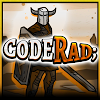Hello everybody
Today I decided to create controls class for my engine (when I say engine, It is VERY loosely said).
Basically I am trying to make SDL code a little simpler to use, the idea would be you create controls class and then
you just do
if (controls->isKeyDown(SLDK_ESCAPE))
{
std::cout << "Escape was Pressed" << std::endl;
}
if (controls->isKeyHeld(SLDK_ESCAPE))
{
std::cout << "Escape is Held" << std::endl;
}
if (controls->isKeyUp(SLDK_ESCAPE))
{
std::cout << "Escape was Released" << std::endl;
}
if (controls->isMouseUp(SDL_LEFT_MOUSE)
{
std::cout << "Left Mouse was Released" << std::endl;
}
and you can guess the rest for the mouse ![]()
If there is already free controls class like that please let me know, or if there is better way of doing controls in SDL ![]()
Unfortunately it does not work the way I intended it too. I managed to get Key Presses working until you start pressing multiple keys, then everything goes messy and it starts thinking keys are pressed when they are not... It will know when key is pressed, held and released as long only that key is being pressed at that every moment.
The Mouse does not work more on other hand. It recognizes that the key was pressed/released but for example when I do
if (controls->isMouseDown(SDL_LEFT_MOUSE)
{
std::cout << "Left Mouse was Pressed" << std::endl;
}
and press any of the mouse buttons, it will read that line even when I use Mouse Wheel button. Also isMouseHeld doesn't work at all. It is never read.
Mouse controls also go messy when you start touching multiple mouse keys at once. Gets stuck on release, just like in controls. Thinks the mouse was released until 1 button is pressed and resets it.
If this class would work I think it could be not just useful to me but would save some time for anyone else ![]() Instead of reinventing the wheel each time...
Instead of reinventing the wheel each time...
I really hate posting large chunks of code, but I have no idea where the problem is in the code... so here is .h and .cpp file. I've commented .h file ![]()
Thank you for your time in advance ![]()
controls.h
#pragma once
#include "stdafx.h"
class DllExport controls
{
public:
//event is passed down from the engine class
controls(SDL_Event* theEvent);
~controls(void);
//different types of possible key states
#define KEY_NONE -1
#define KEY_PRESSED 0
#define KEY_RELEASED 1
#define KEY_HOLDING 2
//returns true key was pressed
bool isKeyDown(int SDLK_ID);
//returns true key is being held
bool isKeyHeld(int SDLK_ID);
//returns true key was released
bool isKeyUp(int SDLK_ID);
//returns true if Mouse button was pressed
bool isMouseDown(int MouseButton);
//returns true if Mouse button is being held
bool isMouseHeld(int MouseButton);
//returns true if Mouse button was released
bool isMouseUp(int MouseButton);
//Gets SDL event
SDL_Event* GetEvent();
//this runs every frame
void Update();
private:
SDL_Event* events; //Pointer to an SDL events system
//Holds Current Mouse states
int LeftMouseState;
int RightMouseState;
int LeftMouseHeld;
int RightMouseHeld;
//Press and Release Key States
int KEYS_STATE[322]; // 322 is the number of SDLK_DOWN events
//Held Key States
int KEYS_STATE2[322];
};
controls.cpp
#include "stdafx.h"
#include "controls.h"
controls::controls(SDL_Event* theEvents)
{
events = theEvents;
for(int i = 0; i < 322; i++) { // init them all to false
KEYS_STATE[i] = KEY_NONE;
KEYS_STATE2[i] = KEY_NONE;
}
LeftMouseState = KEY_NONE;
RightMouseState = KEY_NONE;
LeftMouseHeld = KEY_NONE;
RightMouseHeld = KEY_NONE;
}
controls::~controls(void)
{
}
bool controls::isMouseDown(int MouseButton)
{
if (MouseButton == SDL_BUTTON_LEFT)
{
if (LeftMouseState == KEY_PRESSED)
return true;
}
else if (MouseButton == SDL_BUTTON_RIGHT)
{
if (RightMouseState == KEY_PRESSED)
return true;
}
return false;
}
bool controls::isMouseHeld(int MouseButton)
{
if (MouseButton == SDL_BUTTON_LEFT)
{
if (LeftMouseState == KEY_HOLDING)
return true;
}
else if (MouseButton == SDL_BUTTON_RIGHT)
{
if (RightMouseState == KEY_HOLDING)
return true;
}
return false;
}
bool controls::isMouseUp(int MouseButton)
{
if (MouseButton == SDL_BUTTON_LEFT)
{
if (LeftMouseState == KEY_RELEASED)
return true;
}
else if (MouseButton == SDL_BUTTON_RIGHT)
{
if (RightMouseState == KEY_RELEASED)
return true;
}
return false;
}
void controls::Update()
{
switch (events->type) {
case SDL_MOUSEBUTTONDOWN:
if (events->button.button == SDL_BUTTON_LEFT);
{
if (LeftMouseHeld == KEY_NONE)
LeftMouseState = KEY_PRESSED;
else
LeftMouseState = KEY_NONE;
LeftMouseHeld = KEY_HOLDING;
}
if (events->button.button == SDL_BUTTON_RIGHT);
{
if (RightMouseHeld == KEY_NONE)
RightMouseState = KEY_PRESSED;
else
RightMouseState = KEY_NONE;
RightMouseHeld = KEY_HOLDING;
}
break;
case SDL_MOUSEBUTTONUP:
if (events->button.button == SDL_BUTTON_LEFT);
{
if (LeftMouseHeld == KEY_HOLDING)
LeftMouseState = KEY_RELEASED;
else
LeftMouseState = KEY_NONE;
LeftMouseHeld = KEY_NONE;
}
if (events->button.button == SDL_BUTTON_RIGHT);
{
if (RightMouseHeld == KEY_HOLDING)
RightMouseState = KEY_RELEASED;
else
RightMouseState = KEY_NONE;
RightMouseHeld = KEY_NONE;
}
break;
case SDL_KEYDOWN:
if (KEYS_STATE2[events->key.keysym.sym] == KEY_NONE)
{
KEYS_STATE[events->key.keysym.sym] = KEY_PRESSED;
}
else
KEYS_STATE[events->key.keysym.sym] = KEY_NONE;
KEYS_STATE2[events->key.keysym.sym] = KEY_HOLDING;
break;
case SDL_KEYUP:
if (KEYS_STATE2[events->key.keysym.sym] == KEY_HOLDING)
{
KEYS_STATE[events->key.keysym.sym] = KEY_RELEASED;
}
else
KEYS_STATE[events->key.keysym.sym] = KEY_NONE;
KEYS_STATE2[events->key.keysym.sym] = KEY_NONE;
break;
default:
break;
}
}
bool controls::isKeyDown(int SDLK_ID)
{
if (KEYS_STATE[SDLK_ID] == KEY_PRESSED)
{
return true;
}
else
return false;
}
bool controls::isKeyHeld(int SDLK_ID)
{
if (KEYS_STATE2[SDLK_ID] == KEY_HOLDING)
{
return true;
}
else
return false;
}
bool controls::isKeyUp(int SDLK_ID)
{
if (KEYS_STATE[SDLK_ID] == KEY_RELEASED)
{
return true;
}
else
return false;
}
SDL_Event* controls::GetEvent() { return events; }







